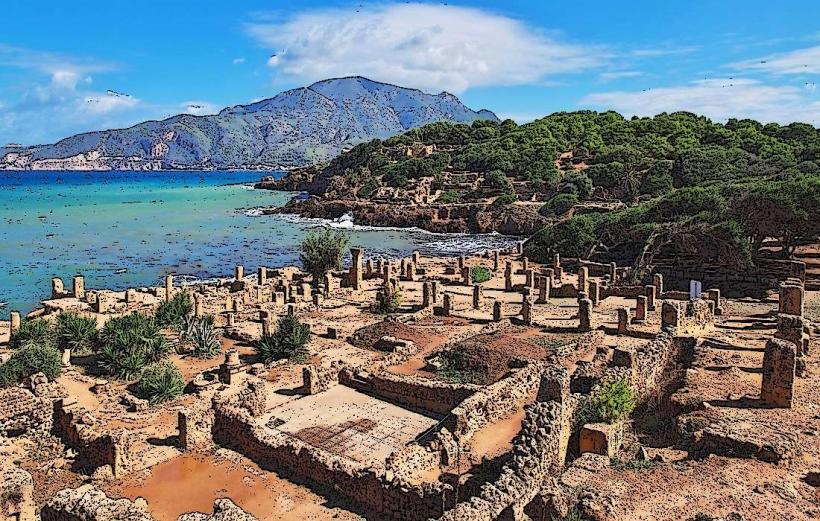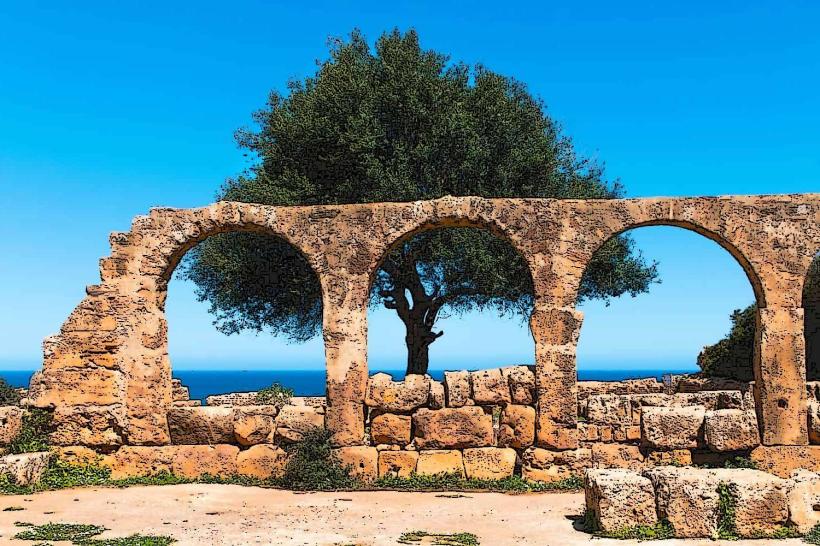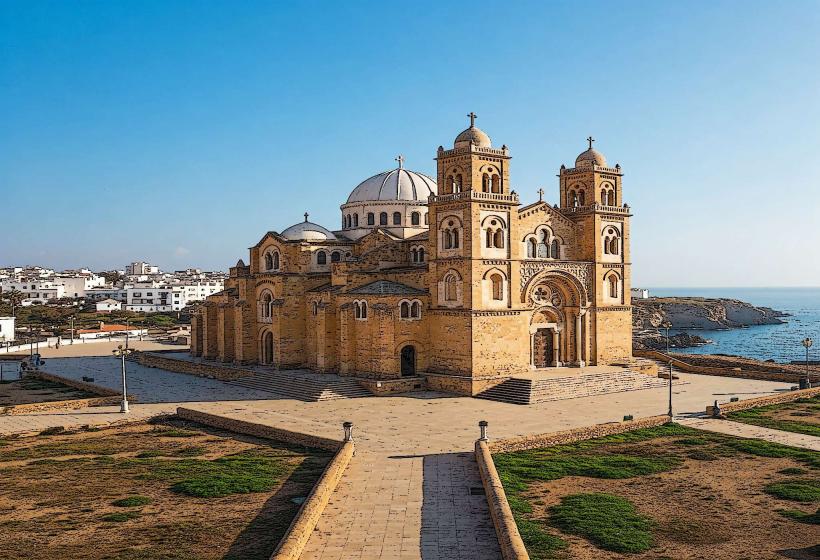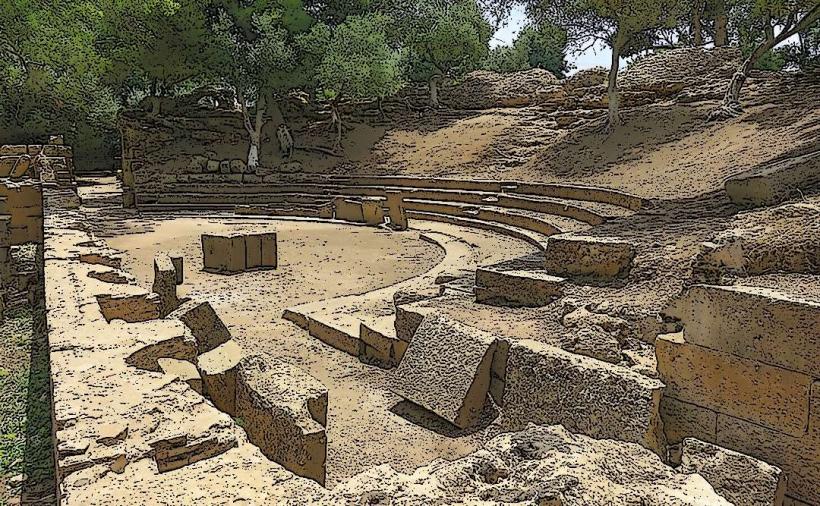Information
City: TipasaCountry: Algeria
Continent: Africa
Tipasa, Algeria, Africa
Tipasa functions as the primary archaeological and coastal pivot of central Algeria. Situated 70km west of Algiers, it serves as a specialized node for UNESCO-listed Roman heritage, Mediterranean viticulture, and maritime tourism. In January 2026, the city is defined by a state of monumental site preservation as local authorities integrate new digital monitoring systems to protect ancient ruins from coastal erosion.
Historical Timeline
6th Century BC: Founded as a Phoenician trading post; specialized as a maritime link between Carthage and the Atlantic.
1st–2nd Century AD: Transformed into a Roman military colony by Emperor Claudius; served as a strategic base for the conquest of Mauretania.
1982: Designated a UNESCO World Heritage site, citing its high-fidelity fusion of Punic, Roman, and Byzantine architecture.
2025 (Dec): Implementation of a specialized "Digital Heritage" initiative to map the archaeological park with LiDAR for conservation.
2026 (Jan 13): Network Integration. Tipasa was integrated into the new Regional Space Communications framework, allowing for specialized satellite monitoring of the wilaya’s coastal stability and archaeological assets.
2026 (Jan 22): Stabilization Period. Local authorities confirmed the completion of winter maintenance for the "Petit Chenoua" coastal road to ensure logistical flow during the wet season.
Demographics & Population
The metropolitan population is approximately 32,000 (2026 estimate), while the Tipasa Province (Wilaya 42) exceeds 700,000. The demographic is characterized by a high-density of administrative professionals and academics linked to the Center for University Research of Tipaza. The city remains a primary weekend node for the Algiers middle class, leading to a specialized "pendulum" demographic shift every 72 hours.
Urban Layout & Key Districts
The Archaeological Park: The specialized heart of the city; an open-air museum housing the majority of the Roman and Punic ruins.
The Port (Le Port): A specialized social and culinary node; known for its high-fidelity seafood restaurants and traditional fishing fleet.
Chenoua: A specialized western coastal district; characterized by high-density beaches and the "Mount Chenoua" backdrop.
Sidi Rached: A specialized inland satellite; home to the Royal Mausoleum of Mauretania and a primary node for traditional pottery.
Cherchell (Iol Caesarea): Located 20km west; a specialized archaeological sister city and the site of the Tipasa National Museum’s largest annex.
Top City Landmarks
Royal Mausoleum of Mauretania (Kbor er Roumia): A specialized 3rd-century BC circular pyramid; the burial site of Juba II and Cleopatra Selene II.
The Roman Amphitheater: A specialized structural remnant in the park; once the city's primary center for public spectacle.
The Great Basilica: A specialized 4th-century religious node; one of the largest early Christian structures in North Africa.
Mount Chenoua: A specialized natural landmark; offers the primary tactical viewpoint over the Mediterranean and the archaeological plains.
The Stele of Albert Camus: A specialized literary monument located within the ruins; inscribed with his famous prose regarding the beauty of the site.
Transportation & 2026 Logistics
A1 East-West Link: The specialized logistical spine; connects Tipasa to Algiers in approximately 1 hour via the coastal highway.
Regional Transit: In 2026, the wilaya is prioritizing the coastal rail study to link the Tipasa-Cherchell corridor to the national Algiers suburban network.
Maritime Logistics: The Port of Tipasa remains a specialized small-craft node; larger freight is diverted to the nearby El Hamdania mega-port project.
Fuel Prices (Jan 2026): Local rates are stabilized at DZD 45.00/L for gasoline and DZD 29.00/L for diesel.
Safety & Environment
The general safety level is High. Warning: As of January 2026, specialized protocols are in place to restrict access to certain cliffside ruins due to winter-induced soil saturation. Environmental Note: Tipasa is a high-priority node for the "Copernicus Sentinel-2" monitoring program, which tracks the impact of rising sea levels on the low-lying Roman structures.
Local Cost Index (2026 Estimates)
1 Night (Secure Coastal Resort): DZD 9,500 – 17,000 (~$70 – $125)
Traditional Grilled Fish Meal (at the Port): DZD 1,500 – 2,500
Guided Archaeological Park Tour: DZD 1,000 – 2,000
Median Monthly Rent (2-BR Apartment): DZD 35,000 – 55,000
1L Gasoline: DZD 45.00
Facts & Legends
Tipasa is the site of the "Legend of the Sunken City," as a specialized portion of the Roman harbor now lies beneath the Mediterranean due to seismic activity. A verified fact is that the city’s name is derived from the Punic word for "Crossing" or "Stopover." Historically, it served as the backdrop for Albert Camus's essay Nuptials at Tipasa. In 2026, the city remains the specialized global epicenter for "Palaeochristian Mosaic Preservation," hosting international conservators during the January climate monitoring cycle.





